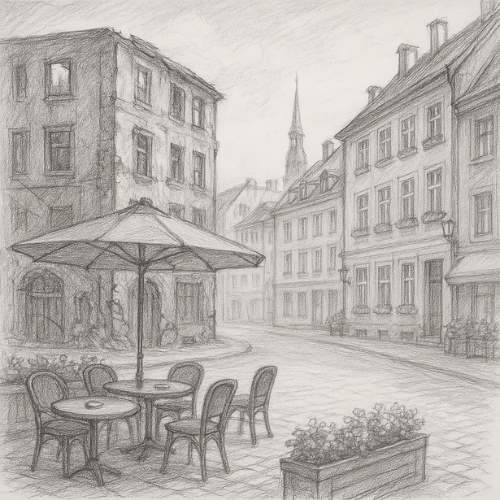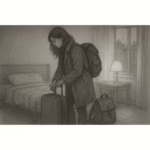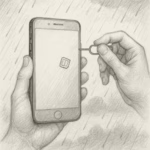I arrived in Riga, the bus rolling to a gentle stop—an old terminal, familiar in structure but somehow more elegant than the one in Tallinn.
The pavement was clean, the shelters well-kept.
Brightly painted benches.
No graffiti.
And flowers—flowers on every window, as if the city itself was proud of its face.
There was a shuttle into town, but I wanted to walk a bit.
The air felt softer, the sky just a little bigger.
I chose a restaurant with a terrace, ordered a Latvian beer, and watched the city breathe.
People moved with a quiet purpose.
Cars passed slowly, careful not to disturb the calm.
It felt… different.
More dignified.
Less hurried.
Later, I booked a short tour around the city.
Modern buildings, sleek glass facades.
And then, almost by accident, I found myself looking at the scars of another era.
The guide spoke softly, in English tinged with memory.
About the Soviet years—gray apartment blocks, lines for bread, voices that couldn’t speak.
I’d heard these stories before, but never so close, never so real.
She spoke with a kind of practiced calm—like a teacher telling children why the world can be cruel.
I listened.
I nodded.
And I thought about all the ways history repeats itself, even when we pretend it doesn’t.
For me, communism was something I was taught to admire—an idea, not a prison.
But here, in this city, it was clear:
The idea had not kept people safe.
The idea had not made them whole.
Still, I didn’t argue.
I didn’t pick sides.
I’ve learned—maybe from years of watching, maybe from living—
that no political system can outlast the pull of karma.
It flows where it must.
And it’s always bigger than us.
But I felt a deep compassion, even as the bus rumbled away from the open-air museum of those crimes.
For these people.
For their parents.
For the generations who wrote their own history, one act of survival at a time.
*ੈ✩‧₊˚
The people of Riga were kind.
It reminded me of a friend—she was Latvian, always the first to pick up the hardest tasks at work.
“Time moves faster if you’re not standing still,” she’d said.
I always liked that.
I think I’ll return to Latvia someday—stay longer, walk slower.
But now, the ferry is waiting.
I’m heading west, across the water.
You know where?
Sweden.
Let it go—like karma.
Let it flow.
Let it begin again.



